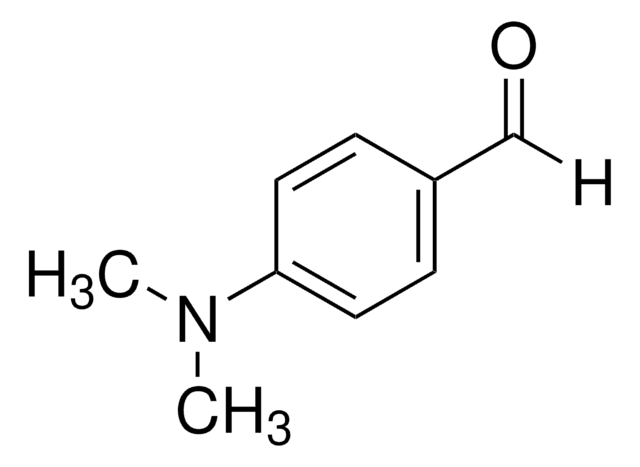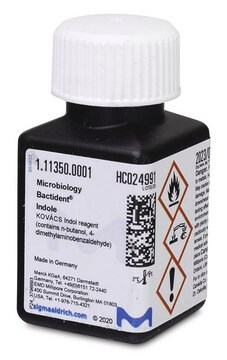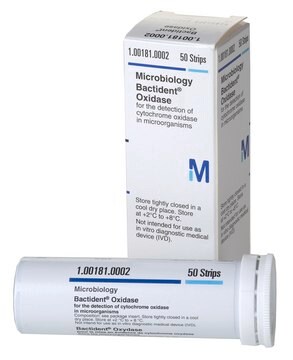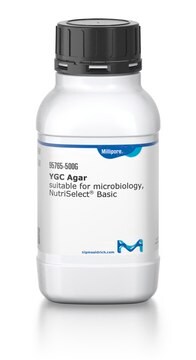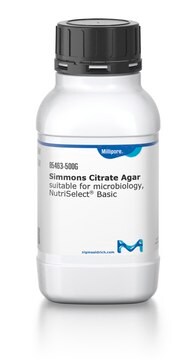67309
Kovac′s reagent for indoles
suitable for microbiology
Sinónimos:
4-(Dimethylamino)benzaldehyde solution
About This Item
Productos recomendados
agency
according to ISO 16654:2001
Quality Level
product line
BioChemika
shelf life
limited shelf life, expiry date on the label
composition
4-(dimethlyamino)benzaldehyde, 50 g/L
hydrochloric acid, 240 g/L
isoamylic alcohol, 710 g/L
technique(s)
microbe id | specific enzyme detection: suitable
application(s)
agriculture
clinical testing
environmental
food and beverages
microbiology
storage temp.
2-8°C
suitability
Escherichia coli
coliforms
SMILES string
[H]C(=O)c1ccc(cc1)N(C)C
InChI
1S/C9H11NO/c1-10(2)9-5-3-8(7-11)4-6-9/h3-7H,1-2H3
InChI key
BGNGWHSBYQYVRX-UHFFFAOYSA-N
¿Está buscando productos similares? Visita Guía de comparación de productos
General description
Application
Replaced by
signalword
Danger
Hazard Classifications
Acute Tox. 4 Inhalation - Eye Dam. 1 - Flam. Liq. 3 - Met. Corr. 1 - Skin Corr. 1B - Skin Sens. 1 - STOT SE 3
target_organs
Respiratory system
Storage Class
3 - Flammable liquids
wgk_germany
WGK 3
flash_point_f
109.4 °F
flash_point_c
43 °C
ppe
Faceshields, Gloves, Goggles, type ABEK (EN14387) respirator filter
Elija entre una de las versiones más recientes:
¿Ya tiene este producto?
Encuentre la documentación para los productos que ha comprado recientemente en la Biblioteca de documentos.
Los clientes también vieron
Artículos
Clostridium perfringens can cause contamination in undercooked or improperly sterillized canned foods and water. Learn to detect, identify, and differentiate this pathogen.
For microbiologists the most fundamental stain was developed in 1884 by the Danish bacteriologist Hans Christian Gram.
There are many other methods of detection to indicate the presence of E. coli. Review common tests and biochemical reactions for this contaminant.
Nuestro equipo de científicos tiene experiencia en todas las áreas de investigación: Ciencias de la vida, Ciencia de los materiales, Síntesis química, Cromatografía, Analítica y muchas otras.
Póngase en contacto con el Servicio técnico
